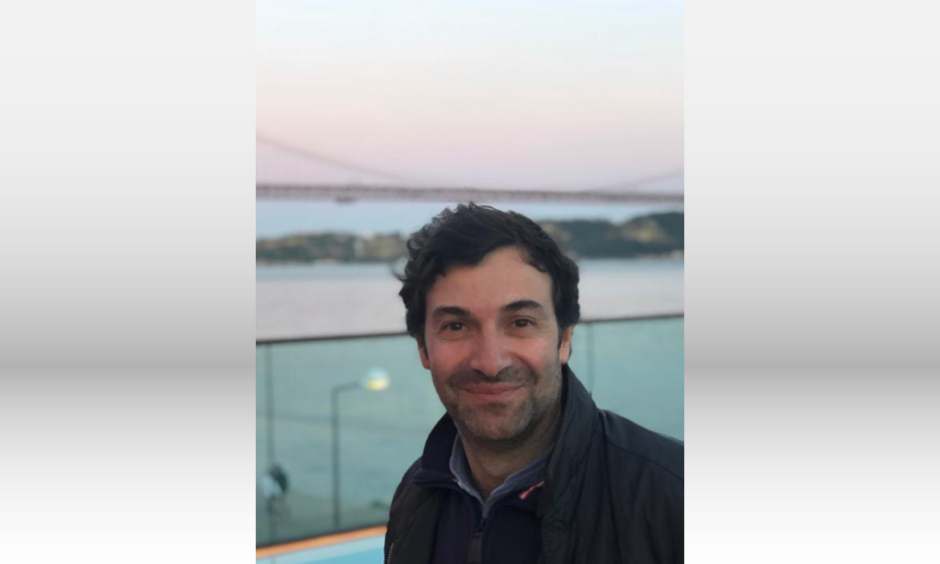Jaime Oliver, EMEA Therapeutic Area Lead, Immunology, Janssen
![]()
Interviewed by Kirstie Turner | Content and Editorial Assistant, EMG-Health
![]()
Jaime Oliver has a long-standing career in the pharmaceutical industry that has led him to his current role as EMEA Therapeutic Area Lead, Immunology at Janssen. We spoke to Jaime about what first attracted him to a career in immunology, the importance of collaboration across different countries, and the use of ustekinumab in paediatric psoriasis.
Q: What first attracted you to studying medicine and surgery at university and then to a career in immunology?
A: As a child, I actually wanted to be a professional tennis player. When I realised I wasn’t good enough, I decided to go with Plan B and follow in my father’s footsteps. My father is an MD, specialising in endocrinology and paediatric medicine, and growing up it was quite normal for his patients and their families to come to my home for their appointments. Over the years, I could see first-hand the positive impact he was having on our community. I decided then that I too wanted to help people by studying medicine, and I’m very glad I did!
Perhaps with tennis still in mind, I initially wanted to pursue sports medicine. However, I soon discovered the extremely complex and exciting topic of immunology. The importance of immunology in the world of medicine was growing exponentially, providing me the chance to work at the frontier of medicine, discovering the emerging science. Today, immunology influences almost every aspect of medicine and I feel very lucky to have become a pharmaceutical leader in this therapeutic area.
Q: As someone who has worked extensively in Spain and Switzerland, how important do you think collaboration and sharing of knowledge across different countries is in improving disease treatment and management?
A: Quite simply, collaboration and sharing of knowledge are critical in this industry. In an increasingly globalised world, we cannot hope to make a real impact for all patients without strong collaborative efforts. My career path has involved roles at a national, regional, and global level, most notably in Spain and in Switzerland, and at every step, collaboration with long-distance colleagues has been paramount to the success of any project. Today, technology allows us to share data and insights to all corners of the world in near real-time. This degree of connection and the co-creation it fosters between pharma, healthcare professionals, academia, medical societies, patient associations, and regulatory bodies is key to the success of new treatments.
Q: How significant is the recent approval of Janssen’s ustekinumab for the treatment of paediatric patients (aged 6–11 years) with psoriasis?
A: In one third of cases, psoriasis begins in childhood, and it can have a long-term, detrimental impact on patients’ physical and mental health. So, for the children and the families affected by the condition, this is a significant moment, especially considering that until recently, these young patients had access to very limited treatment options. Ustekinumab is the first and only biologic treatment targeting the IL-23 and IL‑12 cytokines, important factors in the development of psoriasis, so the option to provide young children with this alternative treatment is much needed and testament to our commitment to addressing areas of high-unmet patient and medical need. Our studies have also shown that patients may require just four injections of ustekinumab per year. As we know that some young children find needles unpleasant, the ability to limit treatment administration to one injection every 3 months is a clinically important prospect.
Q: What was the biggest challenge in getting ustekinumab approved for the treatment of psoriasis in paediatric patients?
A: As with many aspects of life, the involvement of children requires extra care to be taken, and their safety and health is our priority. There are many aspects that must be considered when developing a treatment for any condition in paediatric patients, including psoriasis. For example, the design of clinical trials must be carefully tailored to the needs of children. Efforts must be made to make the trial experience easier for them, such as using expert HCPs with experience in working with young people. From the point of view of safety, children cannot be simply classed as ‘small adults’. The physiology of children and adults can and does vary significantly, making children much more sensitive to the effects of a drug and, of course, its potential side effects. Therefore, the physiological and drug formulation-related challenges are considerable and take many years of research to overcome. Finally, the limited access to this patient population means that extra time is required for recruitment to these clinical trials, and there can be scheduling issues that conflict with school time or the parents’ working hours.
Q: Looking back across your impressive career, what is your proudest moment?
A: Although I feel a sense of personal pride in what I have achieved so far, more importantly, I am proud of the impact our collective work has had. It is only thanks to teamwork that we are able to offer hope to so many patients. I joined this industry with one expectation, that like my father, I would have the opportunity to help dozens of patients a day. In reality, our work helps thousands of patients and their families, sometimes with a single action, such as gaining a letter of regulatory approval, or initiating a new study. It gives me a great feeling of accomplishment. I wake up every day, wanting to go to work and continue making a difference. As I achieve these goals as part of the Janssen family, I am certain that I made the right career choice.








